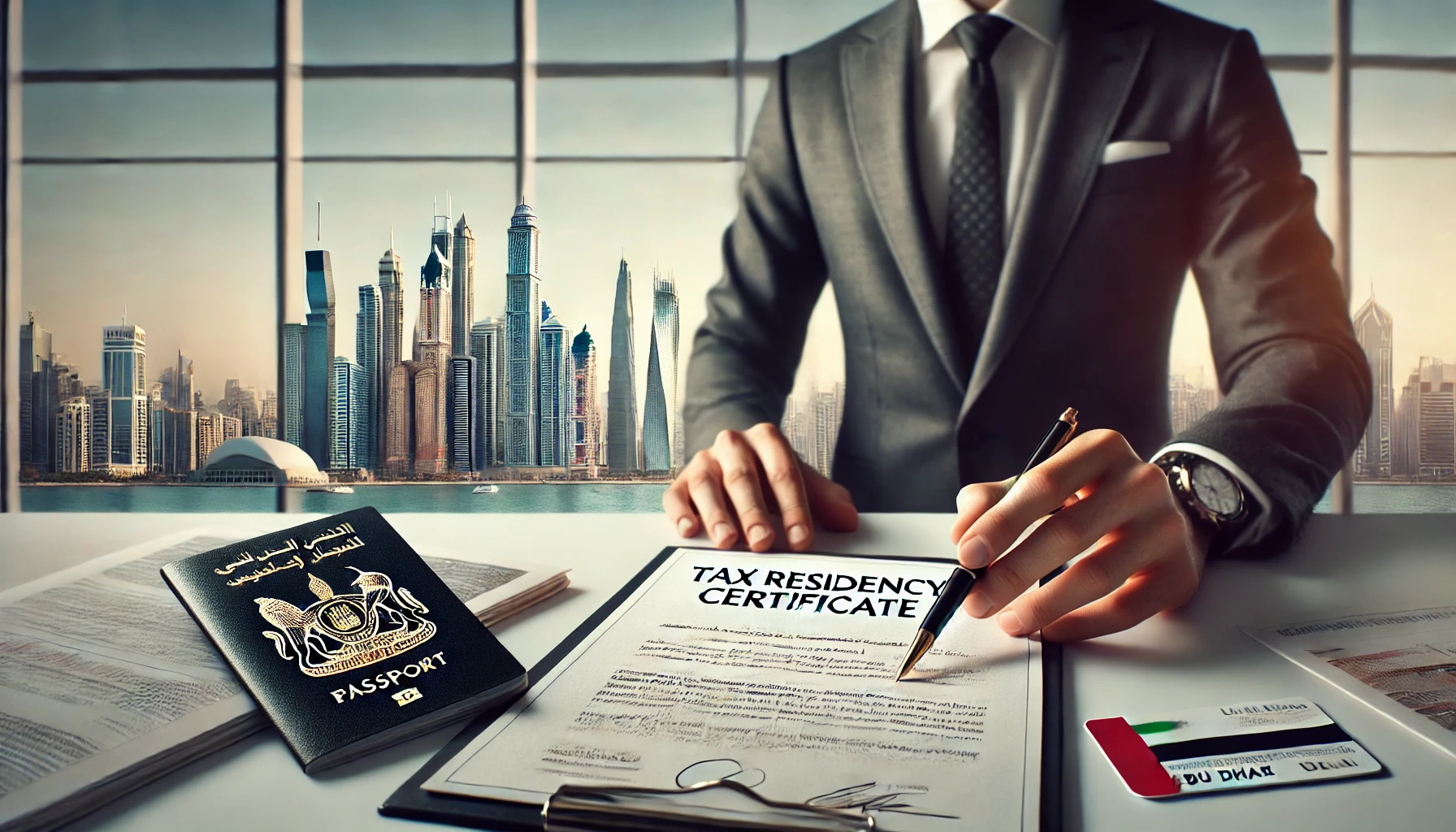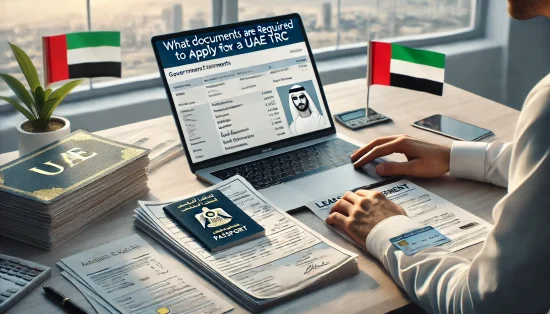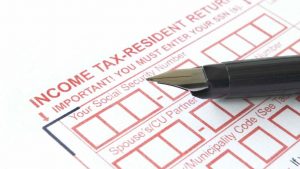
Are you living or operating a business in the UAE and wondering how to prove your tax residency? Whether you’re an individual looking to avoid double taxation or a company aiming to gain international tax benefits, obtaining a Tax Residency Certificate (TRC) is essential. But with varying requirements, document lists, and application steps, the process can feel complex.
What are the eligibility criteria? How much does it cost? How do you apply it correctly? In this comprehensive guide, we answer all these questions and more to help you navigate the process with confidence.
Learn everything you need to know about applying for a TRC in the UAE, avoiding common mistakes, and ensuring your certificate is valid both locally and internationally.
What is a Tax Residency Certificate in the UAE?

A Tax Residency Certificate (TRC) in the UAE is an official document issued by the Federal Tax Authority (FTA) that proves an individual or a legal entity is a resident in the UAE for tax purposes.
This certificate enables the holder to benefit from the UAE’s vast network of Double Taxation Avoidance Agreements (DTAA), helping to avoid paying tax in two different countries on the same income.
The certificate also facilitates smooth international financial and tax operations by confirming your tax domicile to foreign authorities.
The FTA issues three types of certificates under this service:
- Tax Residency Certificate for treaty purposes: Used to claim benefits under DTAAs.
- Tax Residency Certificate for domestic purposes: Used locally within the UAE for legal and tax validation.
- Commercial Activities Certificate (CAC): Used to validate commercial presence for non-resident businesses involved in UAE-based operations.
This certificate is vital for both individuals and businesses operating globally from the UAE.
Who Needs a Tax Residency Certificate in the UAE?
A Tax Residency Certificate (TRC) in the UAE is essential for individuals and businesses seeking to prove their UAE tax residency status to foreign tax authorities. This certificate applies to a wide range of applicants:
- Natural Persons (Individuals): This includes UAE residents, expatriates, freelancers, and retirees who meet the residency duration requirement. Those aiming to benefit from the UAE’s Double Taxation Avoidance Agreements (DTAA) need a TRC to prove tax domicile abroad.
- Legal Persons (Companies): Any UAE-registered business, including mainland and free zone companies, can apply—provided they have operated for at least one year.
- Government Entities: Specific entities can apply to support international or domestic compliance needs.
- Domestic Applicants: Individuals who need the certificate for internal UAE use must fall under specific residence categories as outlined by the FTA.
Foreign company branches and offshore firms are not eligible for a TRC.
Why is a UAE Tax Residency Certificate Important?

A UAE Tax Residency Certificate holds significant value for both residents and companies. Its primary role is to enable applicants to claim tax relief under the UAE’s extensive DTAA network. This helps to eliminate or reduce taxation in the applicant’s home country, ensuring no income is taxed twice.
For individuals, a TRC is often required to prove to their home country that their tax residence is legally in the UAE. This can protect global income from foreign taxation. It also provides a valid document when dealing with international banks, legal systems, or investment platforms.
For businesses, the TRC enables access to tax exemptions, international trade benefits, and smoother compliance with foreign tax regimes. Moreover, it affirms legal operations in the UAE, strengthening credibility during global business transactions or audits.
Without a TRC, residents and companies may face higher international tax burdens or complications in financial dealings.
What Are the Eligibility Criteria for Getting a TRC in the UAE?
To be eligible for a Tax Residency Certificate (TRC) in the UAE, both natural and legal persons must meet specific criteria outlined by the Federal Tax Authority (FTA).
- Natural persons: You must have resided in the UAE for at least 183 days during the requested financial year to apply for a TRC for treaty purposes.
- Domestic purposes: Individuals may also qualify if they spent more than 183 days, between 90 to 183 days, or even less than 90 days, provided other conditions are met, such as demonstrating personal and financial ties to the UAE.
- Legal persons: The business must be established and operating in the UAE for a minimum of one year before applying. Offshore companies and foreign branches are not eligible, as they are not considered to have tax residency in the UAE.
Proper documentation and compliance with these criteria are crucial for successful application approval.
What Documents Are Required to Apply for a UAE TRC?

The required documents for a UAE TRC vary based on the applicant type and the purpose of the certificate. Here’s a breakdown:
1. For natural persons (treaty purposes)
- Valid Passport
- Emirates ID
- UAE Residence Visa
- Entry and exit report from the Federal Authority for Identity and Citizenship
- Certified lease agreement or utility bill (as proof of UAE residence)
- Salary certificate or income proof
- 6-month local bank statement
- Source of income documentation (e.g., trade license for self-employed, investment documents, sponsor income for dependents)
2. For legal persons (treaty purposes)
- Trade license
- Memorandum of Association
- Proof of authorization (MoA or Power of Attorney)
- Certified audited financial statements
- Certified office lease agreement
- 6-month UAE bank statement
3. For domestic TRCs
The document list changes depending on how many days the person has spent in the UAE and includes entry-exit records, proof of income, or evidence of permanent residence.
Accurate and complete documentation is mandatory for successful approval.
How Do You Apply for a Tax Residency Certificate in the UAE?
Applying for a TRC in the UAE is done through the EmaraTax platform, which is available 24/7. Here’s the official step-by-step process as per the FTA:
- Visit trc.tax.gov.ae and log in using your EmaraTax account or create a new one. You can also link an older TRC account.
- Navigate to “Other Services” and select the relevant TRN (Tax Registration Number). If not available, choose “No TRN.”
- Select the type of certificate you need: TRC for treaty or domestic purposes, or Commercial Activities Certificate (CAC).
- Upload the required documents based on your applicant type.
- Pay the submission fee (AED 50) to initiate the process.
- Upon preliminary approval, pay the certificate issuance fee (AED 500 to AED 1,750 depending on applicant type).
- If submitting a tax form for treaty purposes, upload it electronically or send it via courier for FTA attestation.
- Receive your certificate digitally or request a hard copy for an additional AED 250 per copy (delivered within the UAE only).
Processing time is five business days from the date a complete application is submitted.
How Long is the UAE Tax Residency Certificate Valid?
A Tax Residency Certificate (TRC) issued by the UAE’s Federal Tax Authority (FTA) is valid for one year from the start of the selected financial year specified in the application. Applicants must ensure that the chosen financial year is in the past, as TRCs cannot be issued for future periods. This rule applies to both treaty and domestic certificates.
The validity period is fixed and cannot be extended beyond one year. Therefore, if continued proof of UAE tax residency is required for subsequent years, applicants must reapply annually with updated supporting documents.
For printed versions, the certificate is dispatched via Emirates Post after the full fee payment and will be delivered to the address specified in the application. Digital certificates are sent to the registered email address.
Note: The financial year for the certificate must align with actual residency and business operations and must not predate the entity’s establishment date in the UAE.
What Are the Common Challenges When Applying for a TRC in the UAE?

Applying for a Tax Residency Certificate in the UAE involves a structured process, but many applicants face common challenges that can delay or even lead to rejection:
- Incomplete Documentation: Missing or mismatched documents, such as lease agreements not under the applicant’s name or outdated bank statements, often lead to rejections.
- Incorrect Application Data: Discrepancies between the financial year mentioned in the application and in supporting documents can halt the approval process.
- Non-Eligibility: Applicants who haven’t spent enough days in the UAE or businesses less than one year old are automatically ineligible.
- Special Tax Form Issues: If requesting FTA attestation, errors in the form like incorrect year or country details, missing signatures, or not aligning with the TRC request can prevent processing.
- System Errors: Technical glitches during EmaraTax portal submission may also affect application timelines.
Thorough preparation, eligibility checks, and careful document submission can help avoid these issues.
Can You Use the UAE Tax Certificate Internationally?
Yes, the UAE Tax Residency Certificate is widely recognized internationally, especially among countries with which the UAE has signed Double Taxation Avoidance Agreements (DTAA).
This certificate serves as legal proof of tax residency and can be used when dealing with foreign tax authorities to claim exemptions or reduced tax rates on overseas income.
For example, if you’re a UAE resident with income generated in another country under a DTAA, presenting the TRC allows you to avoid being taxed in both countries. However, you must ensure the certificate’s financial year matches the fiscal period of the claim in the foreign country.
For acceptance abroad, many jurisdictions require the TRC to be submitted with a special tax form, which must be signed and, in some cases, attested by the FTA. If hard copies are required for international use, you can request a printed version with courier delivery.
Proper alignment between your TRC and the destination country’s tax form is crucial.
How Does the UAE Double Tax Treaty Work with TRCs?
The UAE has established Double Taxation Avoidance Agreements (DTAAs) with more than 135 countries, allowing residents and entities in the UAE to avoid being taxed twice on the same income. To benefit from these treaties, a Tax Residency Certificate (TRC) is mandatory as it proves your UAE tax residency status to foreign tax authorities.
When you apply for a TRC for treaty purposes, it enables you to:
- Avoid income tax withholding in a foreign country
- Receive tax credits or exemptions abroad
- Benefit from lower tax rates under applicable DTAA rules
To use the TRC for treaty claims, you must often submit a special tax form required by the foreign country. This form should be attested by the FTA if necessary and must match the TRC details, including country name, financial year, and applicant information.
The DTAAs, when used correctly with a valid TRC, help businesses and individuals maximize tax efficiency in global financial operations.
How Much Does It Cost to Get a Tax Residency Certificate in the UAE?

The cost of obtaining a Tax Residency Certificate (TRC) in the UAE depends on the applicant’s type and the purpose of the certificate. The FTA requires a submission fee of AED 50 for all applications, regardless of category. After that, the certificate issuance fee varies:
1. For Treaty or Domestic Purposes
- AED 500 for tax registrants and commercial activity applicants
- AED 1,000 for non-tax registrant individuals
- AED 1,750 for non-tax registrant legal entities
2. For Commercial Activities Certificate
- A flat fee of AED 500 applies
If a printed certificate is requested, there’s an additional charge of AED 250 per copy, delivered by Emirates Post within the UAE only. Payment is made through the EmaraTax platform after document submission and FTA review.
Applicants must ensure correct fee selection based on their category, or the process may be delayed. Fees are non-refundable once paid.
Is There a Difference Between Individual and Company TRC Applications?
Yes, there are clear differences between individual and company (legal person) applications for a Tax Residency Certificate (TRC) in the UAE.
The Federal Tax Authority (FTA) has outlined separate eligibility criteria, documentation requirements, fee structures, and procedural steps depending on whether the applicant is a natural person or a legal person.
Understanding these differences is essential to ensure correct application submission and avoid rejection.
1. Tax Residency Certificate for Individuals (Natural Persons)
To apply for a TRC as an individual, you must have resided in the UAE for at least 183 days during the financial year for treaty purposes, or meet the domestic residency rules for local use. You’ll need to provide:
- A valid passport, Emirates ID, and UAE residence visa
- Entry and exit report
- Certified lease agreement or utility bill as proof of residence
- Salary certificate, source of income documents, or sponsor’s income proof
- Six-month bank statement issued by a UAE bank
Fees for individual applicants:
- AED 50 submission fee
- AED 1,000 for non-tax registrants
- AED 500 for tax registrants
Printed copies are optional at AED 250 per certificate.
2. Tax Residency Certificate for Companies (Legal Persons)
For businesses, the company must be legally established in the UAE for at least one year. This applies to mainland, free zone, and government entities, but excludes offshore companies and branches of foreign entities. Required documents include:
- Valid trade license
- Memorandum of Association
- Proof of authorization (Power of Attorney or MoA)
- Audited financial report, certified by an independent auditor
- Certified lease agreement or tenancy contract for the office
- Six-month UAE bank statement
Fees for companies:
- AED 50 submission fee
- AED 1,750 for non-tax registered entities
- AED 500 for tax-registered businesses
Printed certificates are optional with an additional AED 250 per copy.
Whether you’re applying as an individual or a company, understanding these distinctions ensures a smoother application process and improves your chances of approval.
What Are the Benefits of Holding a Tax Residency Certificate in the UAE?

Holding a UAE Tax Residency Certificate provides several strategic, legal, and financial benefits to both individuals and companies:
- Double Taxation Relief: TRCs enable applicants to access benefits under the UAE’s DTAA network, preventing double taxation on income earned in another country.
- Proof of Tax Residency: A TRC is an official document proving that your tax home is the UAE, essential for compliance with global tax regulations.
- Increased Credibility: It enhances personal and business credibility, especially when dealing with international banks, investors, and legal authorities.
- Ease of Cross-Border Transactions: TRC holders enjoy smoother processing of foreign remittances, dividend distributions, royalties, and service income.
- Domestic Compliance: The domestic TRC can be used for various internal legal and financial processes within the UAE.
Additionally, holding a TRC reflects legal stability and allows individuals and corporations to maximize the UAE’s favorable tax structure in their global operations.
Conclusion
If you’re earning income in multiple countries or doing cross-border business from the UAE, applying for a Tax Residency Certificate is more than just a legal formality; it’s a financial necessity.
The UAE’s TRC opens the door to a broad network of Double Taxation Avoidance Agreements, helping you reduce tax burdens and stay compliant with international laws.
Whether you’re a resident individual, a local business, or a government entity, securing a TRC provides tax relief, recognition, and credibility.
With a structured application process and well-defined eligibility rules, getting a TRC is achievable when you prepare accurately. So, if you’re ready to make the most of the UAE’s tax-friendly environment, a TRC is your next smart move.
FAQ
Can a non resident apply for a UAE tax residency certificate?
No, only individuals who meet the UAE residency criteria (e.g., 183+ days) or businesses established in the UAE for at least a year can apply.
How long do I need to stay in the UAE to qualify for a TRC?
For treaty purposes, you must reside in the UAE for at least 183 days during the selected financial year.
Can a freelancer or self employed person apply for a TRC?
Yes, if they meet the residency and income criteria and hold a valid trade license, they can apply as individuals.
What if my application for a TRC gets rejected?
You may reapply after correcting any errors or providing missing documents. It’s essential to meet all eligibility and documentation requirements.
Is the TRC accepted in all countries under tax treaties?
Yes, it is recognized in countries that have a valid DTAA with the UAE, but supporting documents may still be required.
How do I get the entry and exit report for my application?
You can download it through the UAEICP app or request it from the Federal Authority for Identity and Citizenship.
Can I use the same TRC for future financial years?
No, a TRC is valid only for the financial year you applied for. A new certificate is needed for each year.



